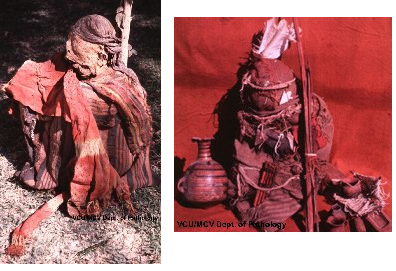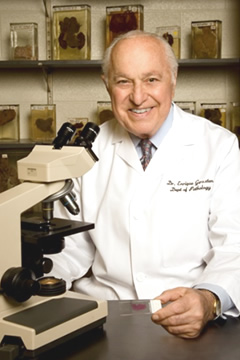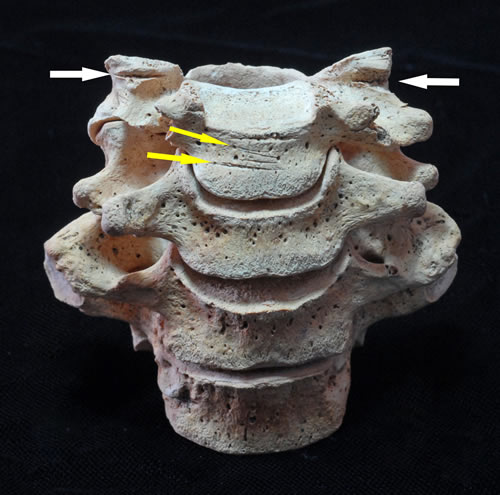Paleopathology - The study of diseases in antiquity
 The investigation of human disease in antiquity has been an ongoing project in the Department of Pathology since 1969. The materials, derived from the autopsy of more than 3,000 Andean mummies covers the entire spectrum of human disease utilizing the latest medical laboratory techniques.
The investigation of human disease in antiquity has been an ongoing project in the Department of Pathology since 1969. The materials, derived from the autopsy of more than 3,000 Andean mummies covers the entire spectrum of human disease utilizing the latest medical laboratory techniques.
The MCV Paleopathology Laboratory is world-renowned as a center for the study of soft human tissue and provides consultation to specialists and students in many branches of medicine. Numerous contributions in the history of disease have been made to the fields of physical anthropology and forensic medicine. The department is a clearinghouse for paleopathology research through its sponsorship of the Paleopathology Club of the International Academy of Pathology, contributing many papers, books, and book chapters. Our department hosts international seminars in paleopathology, and our faculty members actively participate in academic seminars here and abroad. We develop computer-based educational materials, including several CDs. Our department has become an international leader in Paleopathology studies utilizing modern laboratory methodology for diagnosis and identification of early Americans' pathology.
Paleopathology Club
History of the Paleopathology Club
 The Paleopathology Club, one of the scientific societies that meets annually in association with the United States/Canadian branch of the International Academy of Pathology, was started by Marvin J. Allison, PhD and Enrique Gerszten, MD, pathologists at the Medical College of Virginia in Richmond. The Club has held meetings since 1978, rotating through principle cities in the United States and Canada.
The Paleopathology Club, one of the scientific societies that meets annually in association with the United States/Canadian branch of the International Academy of Pathology, was started by Marvin J. Allison, PhD and Enrique Gerszten, MD, pathologists at the Medical College of Virginia in Richmond. The Club has held meetings since 1978, rotating through principle cities in the United States and Canada.
The work of the Paleopathology Club in South America has proven to have a broader application to all of human history, since these studies illuminate the conditions in people of similar societies and environments around the world. Many findings have applications in the field of modern forensic pathology and serve to confirm or deny some of the written materials recorded in Spanish colonial archives and chronicles.
To maintain continued contact with it's members, case studies submitted by members are published quarterly on this web site. Members may try their diagnostic skill on these actual cases. Club members may use these images for lectures and teaching. The Club is supported by the VCU Department of Pathology.
Club News
Paleopathology Newsletters
PDFs:
April 2025 - Newsletter No. 164
September 2024 - Newsletter No. 163
July 2020 - Newsletter No. 153
January 2020 - Newsletter No. 152
October 2019 - Newsletter No. 151
March 2019 - Newsletter No. 150
November 2018 - Newsletter No. 149
April 2018 - Newsletter No. 148
November 2017 - Newsletter No. 147
July 2017 - Newsletter No. 146
March 2017 - Newsletter No. 145
February 2017 - Newsletter No. 144
August 2016 - Newsletter No. 143
March 2016 - Newsletter No. 142
For previous newsletters, please contact Hattie Wyche at hattie.wyche@vcuhealth.org
Contact Us

Enrique Gerszten, MD
Autopsy and Paleopathology

Enrique Gerszten, MD
Autopsy and Paleopathology
Pathology
Emeritus Professor of Pathology;
Director of Paleopathology Research Laboratory
Phone: (804) 828-9746
Fax: (804) 828-9749
.jpg)

